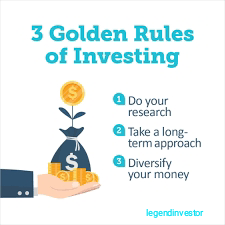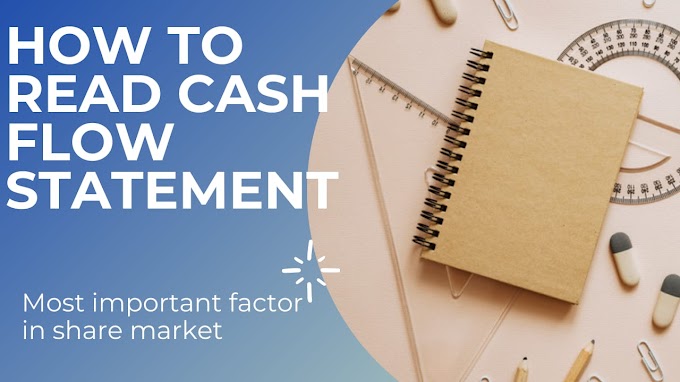Not having money is miserable, and I have been there. Sharing a 100 square foot room with a roommate and counting every penny to make sure that I can make it until the end of the month has taught me a lot. I am still very careful with money because I know what it means to cut down on your meals to make the rent at the end of the month.
Back when I was a freshman, I wasn't thinking to make a lot of money, but I wanted to get out of that desperate financial position because I had to make a lot of compromises. I couldn't focus on my college because I had to work for hours every day to be able to pay the rent. So my only hope was, once I graduate,
I will have the required skills to find a job that will provide me with the comfort of free time. I will use that time to develop a business or skills that will further increase my income. It seemed like a reasonable plan; however, it wasn't long enough that I realized it wasn't as good as I thought because I wasn't ready to wait a few years to graduate and then figure out what to do.
So I decided to try everything I could. I tried to start an online business, got into real estate, joined a little startup. And after years of commitment and hard work, I made it.
When you don't have to worry about money, trust me! Life changes. You no longer base your every decision on how much does it cost. You will suddenly have the freedom to do things that are interesting to you, that matter to you.
You will have the freedom to take a break from everything and don't worry about the rent. You don't have to be a billionaire to do that. It takes far less than that. So in this video, I want to share with you some basic steps to achieve financial freedom if you are just starting out or still on the way to do that. Number 1 - Stay Cashflow Positive How good are you at managing your cashflow? is eventually, what determines how financially successful are you going to be?
If you have taken accounting classes, you probably know what cash flow is. But in college, they teach that - Businesses have cashflow; however, in life, we deal with the same problem. We have to manage the inflow and outflow of cash.
To keep your business healthy, you have to make sure that there is more money coming in than going out, or at least the amount of money that leaves the business is equal to the amount that it receives. It doesn't matter how much debt or expenses the business has. As long as it generates more cash than it loses, it's a good business.
Personal finance works exactly the same way. It doesn't matter how much debt you have, mortgage, student loans, car lease, as long as you are cashflow positive. 2. Don't take unnecessary responsibilities This mistake is literally one of the main reasons why a lot of people are struggling financially. They might be cashflow positive, but then they take a financial responsibility that they can't afford.
I am not just talking about getting a brand new car lease or credit card debt, but they get into an expensive relationship maybe or start a family. Don't get me wrong! I am not saying that starting a family is a bad idea.
But here is the equation, let's say your cashflow is balanced. You start a family, raise a kid, your expenses increase, you get a second job or get a promotion, and your income rises as well.Not bad, right? But as you keep getting older, your expenses rise as well, and at some point exceed your income, so you become cashflow negative, and for the rest of your life,
you will be working hard to catch up with your negative cash flow, and that's known as - generational poverty. You get to the point where you don't have the means to build capital that will get you out of poverty. Most people today can't get financially independent not because they don't work hard, but rather they put themselves in a situation where they have no other option but to spend every penny they earn.
So, To keep your cashflow always positive, you need to do, step number 3. 3. Build an investment portfolio Around 4K years ago in a kingdom in ancient Mesopotamia. There was a guy named Arkad who was poor, like really poor.
To escape poverty, he worked hard to put food on the table; however, when he received the payment for his service, he put very little food on the table and lent the rest of the money to a shield maker, who then paid interest on the loan. Instead of spending that interest to improve his standard of living, he lent it to another shield maker, thus growing his wealth even more. After repeating this process for many years, his wealth grew so big that he did not have to work again, and ended up the richest man in that city, Babylon.
You might not find a shield marker today to lend him your money, but there are clearly other instruments that you can use to grow wealth. Consider this. The S&p500 is an index that measures the performance of the top 500 US companies. Historically it had an average rate of return of around 10 percent.
This means that if you put aside and invest just 1K dollars every month into the SP500 when you are 20, by the time you get 50, you will have almost 2 million dollars ( $1,991,377). And That's just with a thousand dollars. Imagine if you increase that number every year to 2K or 3K or even 5K as your income grows, you will end up with tenths of millions of dollars.
That's how you keep your cash flow always positive. How to invest in the SP500 and how exactly does it works, we have already covered that in a previous video which link I will leave in the description. But before we move on, here is a little disclaimer - we are not financial advisers, and anything we say on this channel should not be taken as financial advice. You should do your own research before making any investment. 4. Be liquid Don't go out and throw all of your money into the stock market because investing isn't all sunshine and rainbows.
If you would put in a thousand dollars into the S&P500 in June 200 7 and decide to withdraw it a year later because you had an emergency. How much do you think you would have made on that thousand dollars? I am sorry to say this, but Negative 50 percent. You would need to wait another five years (2013) just to earn your money back. And that's how the market works.
It jumps up and down every day. Sometimes a crisis hits, and it might need a few years to recover. That's why if you are serious about the stock market, you should be in it for the long run to rip the profits.But to truly feel that you are financially independent, you need to be liquid.
If something goes wrong, you are not worried. You got fired, business is going south, a recession is around the corner, no problem, you have got yourself covered, you have enough cash to not worry about the bills for at least six months. 5. Have a plan All of the things we have talked about in this video sound amazing, but how on earth do you get the money to do all of that.
The only feasible option seems to win the lottery. You can, of course try that, good luck! However you have another option, plan your spendings! You are not going to build a 6-month cash cushion in a single month.
You are not going to build a million-dollar investment portfolio in a few months. And guess what?! you don't have to! Financial independence isn't the final destination. The goal isn't just to make enough money and retire for good. Instead, to put yourself in a position where you are not going to base your every decision on how much it cost.
You are not going to accept that new job just because it pays slightly higher.You are probably going to continue working but instead working on things that matter to you the most. With fewer financial problems, hopefully, your life is going to be a little more colorful. I hope you guys have enjoyed this blog.






0 Comments
Did you enjoy what you read? Subscribe to our newsletter and get content delivered to you at your fingertips!!